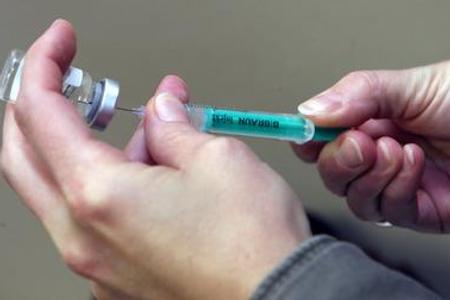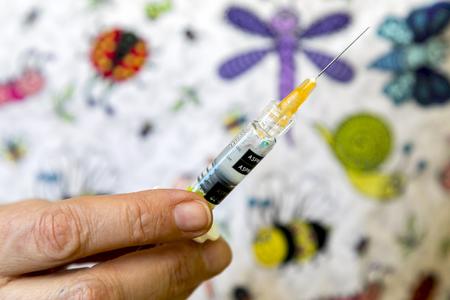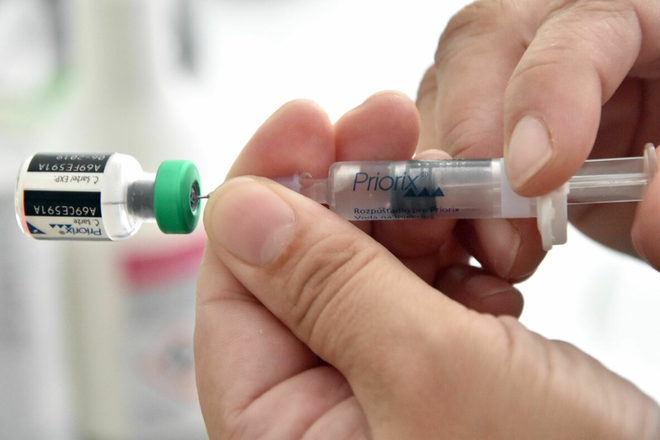Slovaks in their thirties are at risk of contracting measles, according to a recent immunity report carried out by the Health Ministry. The last document of this nature was prepared 16 years ago.

“It would be suitable if the re-vaccination of adults was compulsory and covered by health insurance,” suggested Peter Makara, head of the Slovak Society of General Practice (SSVPL), who is surprised by the findings, as quoted by the Pravda daily.
The latest report on the state of the population's immunity was conducted in 2018. Its goal was to learn how immune Slovaks are to measles, mumps, rubella and viral hepatitis A, B and C.
In total, 332 doctors and 4,218 people ages 1-69 from different regions were involved in the survey. The ministry paid €250,000 for it, Pravda wrote.
The threat of measles returns
The survey showed that people aged 35-39 years have the alarmingly weakest immunity to the measles.
“It is a slow disease, and one in a million cases can result in severe brain damage and death after 10 or 15 years ,” said Katarína Holečková of the department of infectious diseases and geographical medicine at the University Hospital in Bratislava, as quoted by Pravda.
Almost 20 percent of people in their thirties do not have, in fact, enough antibodies to fight the sickness, regardless of whether they were vaccinated in the past.
“Not all people can produce antibodies,” said Slovakia's chief hygienist Ján Mikas, as quoted by Pravda. “The vaccine does not mean 100-percent protection.”
However, there are also other factors, including the cold weather and the use of other vaccinations in the past that may impact Slovaks' exposure to the illness, Mikas added.

On the other hand, children are the most resilient to measles. For instance, 96.3 percent of three-year-olds have a sufficient level of antibodies. Similarly, 97.8 percent of people over 50 are immune to the disease, as reported by Pravda.
The measles triumphantly returned to Slovakia, reliving its renaissance, after 20 years. In the last two years, the disease has been spread in the east of the country, causing local epidemics.
Mikas has recommended the re-vaccination of Slovaks in their thirties, as well as people aged 25-49 years and the medical staff. It is not known whether the recommendations will actually turn into obligations, Pravda reported.
Hepatitis A also causes problems
Hepatitis A is another problematic disease as only 10.6 percent of children under five are resilient to it. Overall, 73.8 percent of people are not immune to hepatitis A, according to the survey.
“The most exposed are children, who live in bad sanitary and social conditions,” said Mikas, as quoted by Pravda.
He expects that viral hepatitis A epidemics may increase in frequency across all age groups in the future.

Vaccination against hepatitis is not mandatory, which is why only a low number of people are vaccinated. Experts will therefore decide on whether to recommend the vaccination of children aged 2-5 years.
“I do not think the vaccination against hepatitis should be obligatory because we are a civilised nation,” said general practitioner Valéria Cehulová, as quoted by Pravda. However, it should be required for citizens from a socially-disadvantaged environment, she added.
Personal hygiene is key in preventing hepatitis, doctors also claimed.
Hepatitis C and other diseases
Slovaks are also less immune to mumps. However, this is mostly due to the fact that the vaccination is the least effective, Mikas said, as reported by Pravda.
By contrast, the vaccination against rubella is the most effective. In addition, immune systems are sufficiently resilient to hepatitis B. Slovaks have been required to get vaccinated in this case since 1998.
Experts also tested Slovaks for hepatitis C, for which there is no vaccination available. There is no threat caused by this disease, however.
“We discovered only four cases of this illness, and all the patients have been offered medical treatment,” added Mikas, as quoted by Pravda.



 Slovaks ages 35-39 have the alarmingly weakest immunity to measles. (source: TASR)
Slovaks ages 35-39 have the alarmingly weakest immunity to measles. (source: TASR)